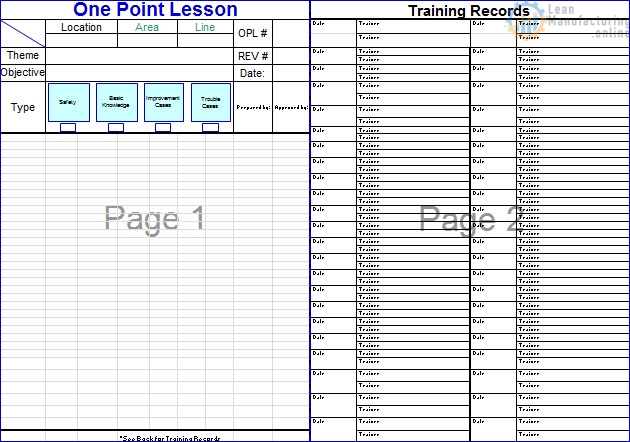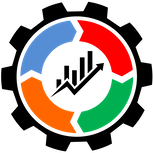Are you looking to boost your career in project management and stand out from the crowd? 🚀 In today’s competitive job market, acquiring a Project Management Professional (PMP®) certification could be the key to unlocking new opportunities and propelling your career to new heights. We’re excited to share our comprehensive guide on why obtaining a PMP® certification is essential for project managers seeking success in the field. 💼
In this guide, we’ll dive deep into the benefits of PMP® certification, its value to your career and why it is a sought-after accreditation by employers worldwide. 🌍
Ready to level up your project management expertise and advance your career? Let’s explore the advantages of PMP® certification together! 🏆
There are several reasons why someone might consider getting a Project Management Professional (PMP)® certification:
- Improved career prospects: Many organizations, particularly in business, technology, and healthcare, prefer or require their project managers to hold a PMP® certification. Having a PMP® certificate can make you more competitive in the job market and may open up new job opportunities.
- Enhanced credibility: A PMP® certification demonstrates that you have a strong foundation of knowledge and experience in project management. It is recognized globally as a symbol of professionalism and commitment to project management.
- Improved skills and knowledge: To earn a PMP® certification, you must demonstrate your knowledge of the PMP® exam content through education and experience. This process can help you deepen your understanding of project management and enhance your skills in project planning, execution, monitoring and controlling.
- Increased earning potential: According to the Project Management Institute (PMI), PMP® certified project managers earn, on average, 20% more than their non-certified counterparts.
- Personal growth: Pursuing a PMP® certification requires significant time and effort. However, preparing for and taking the exam can be a valuable learning experience to help you grow personally and professionally.
Recognition
The Project Management Professional (PMP®) certification is widely recognized as one of the most prestigious and respected certifications in project management. It is offered by the Project Management Institute (PMI), a globally recognized organization that sets the standards for project management.
Other types of certifications
Other non-technical certifications may also be considered prestigious, depending on the individual’s career goals and industry. For example, certifications such as the Certified ScrumMaster (CSM®) and Certified Associate in Project Management (CAPM®) may be considered prestigious in specific industries or for certain roles. Ultimately, the prestige of certification will depend on its recognition and value in a particular industry or organization.
Compensation
The salary of a Project Manager with a PMP® (Project Management Professional) certification can vary depending on several factors, including their level of experience, the industry they work in, the size and location of their organization, and their specific job responsibilities.
According to the Project Management Institute (PMI), PMP® certified project managers earn, on average, 20% more than their non-certified counterparts. The median salary for a PMP® certified project manager in the United States is $116,000 per year, according to PMI’s 2020 Project Management Salary Survey data. However, salaries can range from around $70,000 annually for entry-level project managers to over $150,000 annually for those with extensive experience and advanced responsibilities.
It is worth noting that salaries can vary significantly based on the industry in which a project manager works. For example, finance and insurance industry project managers earn higher salaries than those in the education or government sectors.
Necessary Steps to Become PMP® certified project manager
To become a Project Management Professional (PMP®) certified by the Project Management Institute (PMI), you must meet particular education and experience requirements and pass the PMP exam. Here are the steps you can follow to become a PMP®:
- Verify that you meet the eligibility requirements: To be eligible for the PMP®, you must have a bachelor’s degree (or equivalent) and at least 4,500 hours of project management experience. If you do not have a bachelor’s degree, you will need a high school diploma (or equivalent) and at least 7,500 hours of project management experience.
- Meet the education requirements: You must have completed 35 hours of project management education or training to qualify for the PMP® exam. This can be achieved through various methods, such as taking a PMP® exam prep course or completing a degree or certificate program in project management.
- Gather your experience documentation: You must provide documentation of your project management experience, including the names and descriptions of the projects you worked on, your roles and responsibilities, and the number of hours you spent on each project.
- Submit your application: Once you have gathered the necessary documentation, you can submit your PMP® application online through the PMI website.
- Pass the PMP® exam: If your application is approved, you will receive instructions on scheduling your PMP® exam. The exam consists of 200 multiple-choice questions and is administered at testing centers worldwide. To become certified, you must earn a passing score of at least 61%.
- Maintain your certification: Once you become a PMP®, you must maintain your certification by earning 60 professional development units (PDUs) every three years and paying an annual maintenance fee.
What is PMBOK®?
The Project Management Body of Knowledge (PMBOK®) Guide is a globally recognized standard for project management. It is published by the Project Management Institute (PMI) and provides a framework for planning and executing projects.
The PMBOK® Guide is a guidebook that outlines the processes and knowledge areas essential to successful project management. It covers the five process groups (initiating, planning, executing, monitoring and controlling, and closing) and the nine knowledge areas (integration, scope, time, cost, quality, resources, communication, risk, and procurement) involved in managing projects.
The PMBOK® Guide is used as a reference by project managers and organizations worldwide and is also the basis for the PMP® certification exam. It is updated regularly to reflect changes in the field of project management and to incorporate new best practices.
Link to get the free course Power Start in Project Management here

















The ANSI/PMI 99-001-2021 Standard for Project Management and the PMBOK® Guide 7-th Edition, 2021 (as well as their previous editions) are two different documents.
We can not say (I cite): “The Project Management Body of Knowledge (PMBOK®) Guide is a globally recognized standard for project management”.
The PMBOK® Guide is neither a standard nor a project management methodology.
Inside page 2 of the PMBOK® Guide 6-th edition, the things are clarified for the first time by PMI:
“This PMBOK® Guide is different from a methodology. A methodology is a system of practices, techniques, procedures, and rules used by those who work in a discipline. This PMBOK® Guide is a foundation upon which
organizations can build methodologies, policies, procedures, rules, tools and techniques, and life cycle phases needed to practice project management”.
1.1.1 THE STANDARD FOR PROJECT MANAGEMENT
“This guide is based on The Standard for Project Management. A standard is a document established by an authority, custom, or general consent as a model or example. As an American National Standards Institute (ANSI) standard, The
Standard for Project Management was developed using a process based on the concepts of consensus, openness, due process, and balance. The Standard for Project Management is a foundational reference for PMI’s project management
professional development programs and the practice of project management”.